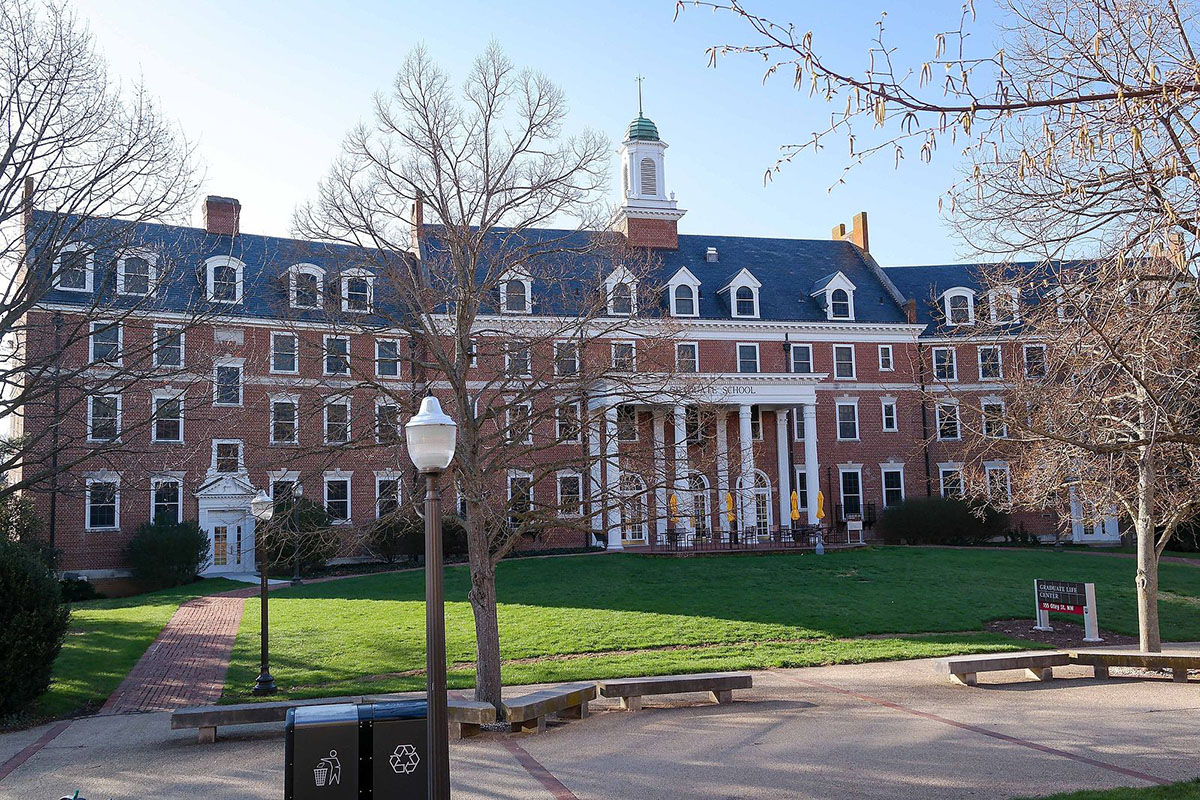 The Graduate Life Center at Virginia Tech in Blacksburg, Virginia. Photo by Smash the Iron Cage/Wikimedia Commons under the Creative Commons Attribution-Share Alike 4.0 International license.
The Graduate Life Center at Virginia Tech in Blacksburg, Virginia. Photo by Smash the Iron Cage/Wikimedia Commons under the Creative Commons Attribution-Share Alike 4.0 International license. A letter signed by 79 Jewish groups called on Virginia Tech President Timothy D. Sands to take a stronger stance against the Boycott, Divestment and Sanctions (BDS) resolution recently passed by the Virginia Tech Graduate and Professional Student Senate (GPSS).
The resolution, passed during an October 21 meeting, called for a “boycott of all Israeli academic institutions complicit in maintaining the Israeli occupation and the denial of basic Palestinian rights” and to divest from “all institutional investments from companies that profit from the Israeli occupation and apartheid.” In response, Sands issued a statement on October 29 saying that the university “strongly supports the free speech rights of members in our community as well as organizations to express their opinions, regardless of whether those views are widely shared or controversial.” Sands also acknowledged that “there are legal boundaries that must not be crossed, and university policies with consequences for those who violate them. Everyone in our community should be free from harassment, discrimination, and physical threats to their safety.”
The letter, spearheaded by the AMCHA Initiative and signed by groups like the Simon Wiesenthal Center, StandWithUs and B’nai Birth International, noted that the university also has the freedom of speech to condemn the resolution. “More importantly, your statement failed to recognize the possibility that GPSS members, many of whom serve as Graduate Teaching Assistants, may implement elements of the academic boycott on campus and in their own classrooms, in ways that would directly and substantively harm undergraduates on your campus, particularly those who are Jewish and pro-Israel,” they added. “We urge you to take immediate steps to ensure that this does not happen at Virginia Tech.”
The letter also argued that boycotts of Israel undermine the rights of students on campus since they can result in the closure of “academic exchange programs in Israel” as well as the refusal of professors “to write letters of recommendation for their students who want to study in Israel; and disrupt or shut down educational activities about Israel or featuring Israeli scholars or leaders at their own schools. All of these actions directly subvert the educational opportunities and academic freedom of undergraduate students who want to study about or in Israel.” Additionally, “instructors who support an academic boycott of Israel are far more likely to include anti-Israel content in their courses” and that anti-Israel rhetoric tends to lead to an increase in antisemitic incidents on campus.
The letter concluded with a call for Sands to issue a statement repudiating “demands for the university to implement an academic boycott of Israel, specifically acknowledges the harms of an academic boycott for members of the Virginia Tech community, and affirms your commitment to ensuring that no student will be impeded from studying about or 3 in Israel, or will be subject to unfair discrimination or harassment, because of the implementation of such a boycott on your campus” as well as clearly telling Graduate Teaching Assistants that they cannot use their positions to advance their political agendas.
“A major contributor to the erosion of public trust has been the unbridled politicization of college and university classrooms by instructors complying with the guidelines of an academic boycott of Israel,” the letter stated. “Taking steps to prohibit such behavior will go a long way towards restoring public trust.”
The university did not respond to the Journal’s request for comment.






















 More news and opinions than at a Shabbat dinner, right in your inbox.
More news and opinions than at a Shabbat dinner, right in your inbox.